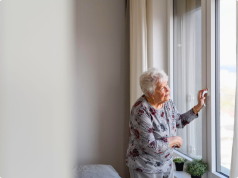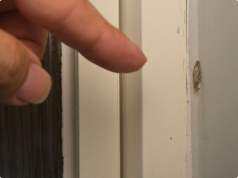Stroke is one of the leading causes of death and long-term disability worldwide — striking suddenly, often without warning, and leaving life-altering consequences. But here’s the good news: up to 80% of strokes are preventable.
While factors like high blood pressure, diabetes, and genetics play a role, your daily habits — especially around mealtime and bedtime — can dramatically influence your risk.
Medical experts emphasize a simple yet powerful lifestyle guideline to protect your brain and heart:
👉 The “3 Don’ts” after meals
👉 The “4 Don’ts” before sleep
These aren’t extreme restrictions — just smart, science-backed choices that can keep your blood vessels healthy, your blood pressure stable, and your sleep restorative — no matter your age.
The “3 Don’ts” After Meals — Protect Your Body While It Digests
After eating, your body redirects blood flow to the digestive system. This natural process can temporarily affect circulation, blood pressure, and heart function — making it a critical window for stroke prevention.
Avoid these three risky behaviors right after eating:
1. Don’t Smoke
Smoking immediately after a meal is especially dangerous.
- Digestion already increases heart rate — adding nicotine further spikes blood pressure and constricts blood vessels.
- Carbon monoxide in smoke reduces oxygen in the blood.
- Over time, this damages arteries and raises the risk of clot formation.
✅ Better choice: If you smoke, seek support to quit. Your brain and heart will thank you.
2. Don’t Take a Shower Immediately
Jumping into a hot shower right after eating can be risky — especially for older adults or those with cardiovascular conditions.
Why?
- Hot water causes blood vessels to dilate, pulling blood away from the digestive organs and brain.
- This sudden shift can lead to dizziness, low blood pressure, or even fainting — increasing stroke risk in vulnerable individuals.
✅ Wait 30–60 minutes after eating before showering — especially with hot water.
3. Don’t Sleep or Lie Down Right Away
Lying down too soon after a meal can:
- Slow digestion
- Trigger acid reflux
- Cause blood to pool unevenly, affecting circulation
For people with high blood pressure or a history of heart issues, this can disrupt blood flow to the brain.
✅ Stay upright for at least 30 minutes after eating. A gentle walk is even better — it aids digestion and stabilizes blood sugar.
The “4 Don’ts” Before Sleep — Safeguard Your Brain at Night
The hours before bedtime are crucial. Poor nighttime habits can raise blood pressure, disrupt sleep, and strain your cardiovascular system — all of which increase stroke risk.
Avoid these four behaviors to protect your health while you sleep:
1. Never Eat a Heavy or Late Meal
Eating a large or fatty meal within 2–3 hours of bedtime forces your body to digest while it should be resting.
This can:
- Spike blood sugar and cholesterol levels overnight
- Disrupt sleep quality
- Increase inflammation and insulin resistance
Over time, this raises the risk of obesity, diabetes, and stroke.
✅ Do this instead: Eat a light dinner, finish at least 2 hours before bed, and avoid snacks late at night.
2. Don’t Drink Alcohol
While alcohol may make you feel drowsy, it disrupts deep, restorative sleep and can:
- Cause nighttime spikes in blood pressure
- Trigger atrial fibrillation (AFib) — a major cause of stroke
- Dehydrate the body and thicken the blood
Even moderate drinking before bed can be risky for stroke-prone individuals.
✅ Limit alcohol — and never use it as a sleep aid.
3. Don’t Use Electronic Devices Excessively
Scrolling through your phone, watching TV, or working on a laptop late at night:
- Suppresses melatonin, the sleep hormone
- Increases mental stimulation and stress
- Raises heart rate and blood pressure
Poor sleep quality is linked to chronic inflammation, high blood pressure, and stroke.
✅ Unplug at least 30–60 minutes before bed. Read a book, meditate, or listen to calming music instead.
4. Don’t Sleep in a Cold Environment Without Warm Clothes
A sudden drop in body temperature during the night can cause blood vessels to constrict sharply, especially in older adults or those with hypertension.
This can:
- Spike nighttime blood pressure
- Increase the risk of ischemic or hemorrhagic stroke during sleep or early morning
✅ Keep warm: Wear light pajamas, use blankets, and maintain a bedroom temperature of 65–70°F (18–21°C).
Why These Habits Matter — The Science Behind Stroke Prevention
Strokes happen when:
- A blood clot blocks a brain artery (ischemic stroke), or
- A vessel bursts in the brain (hemorrhagic stroke)
Both are often preceded by:
- High blood pressure
- Poor circulation
- Inflammation
- Blood vessel damage
The “3 Don’ts” and “4 Don’ts” target these very factors — by:
- Stabilizing blood pressure
- Improving sleep quality
- Supporting healthy digestion
- Reducing strain on the heart and brain
These habits aren’t just for older adults. Even in your 30s and 40s, adopting them can prevent long-term damage and delay or prevent stroke entirely.
Final Thoughts: Prevention Starts with Small Steps
You don’t need expensive treatments or extreme diets to reduce your stroke risk.
You just need awareness and consistency.
By following these 7 simple “Don’ts” — the 3 after meals and the 4 before bed — you’re not just avoiding danger.
You’re building a healthier, safer routine that protects your brain, heart, and longevity.
🌙 A stroke doesn’t warn. But you can prepare.
Start tonight.
Put down the phone.
Skip the night snack.
Stay upright after dinner.
Keep warm.
And let your body rest — the way it was meant to.
Because the best defense against stroke isn’t a miracle cure — it’s a mindful life.
Prevention begins now — one smart choice at a time.






